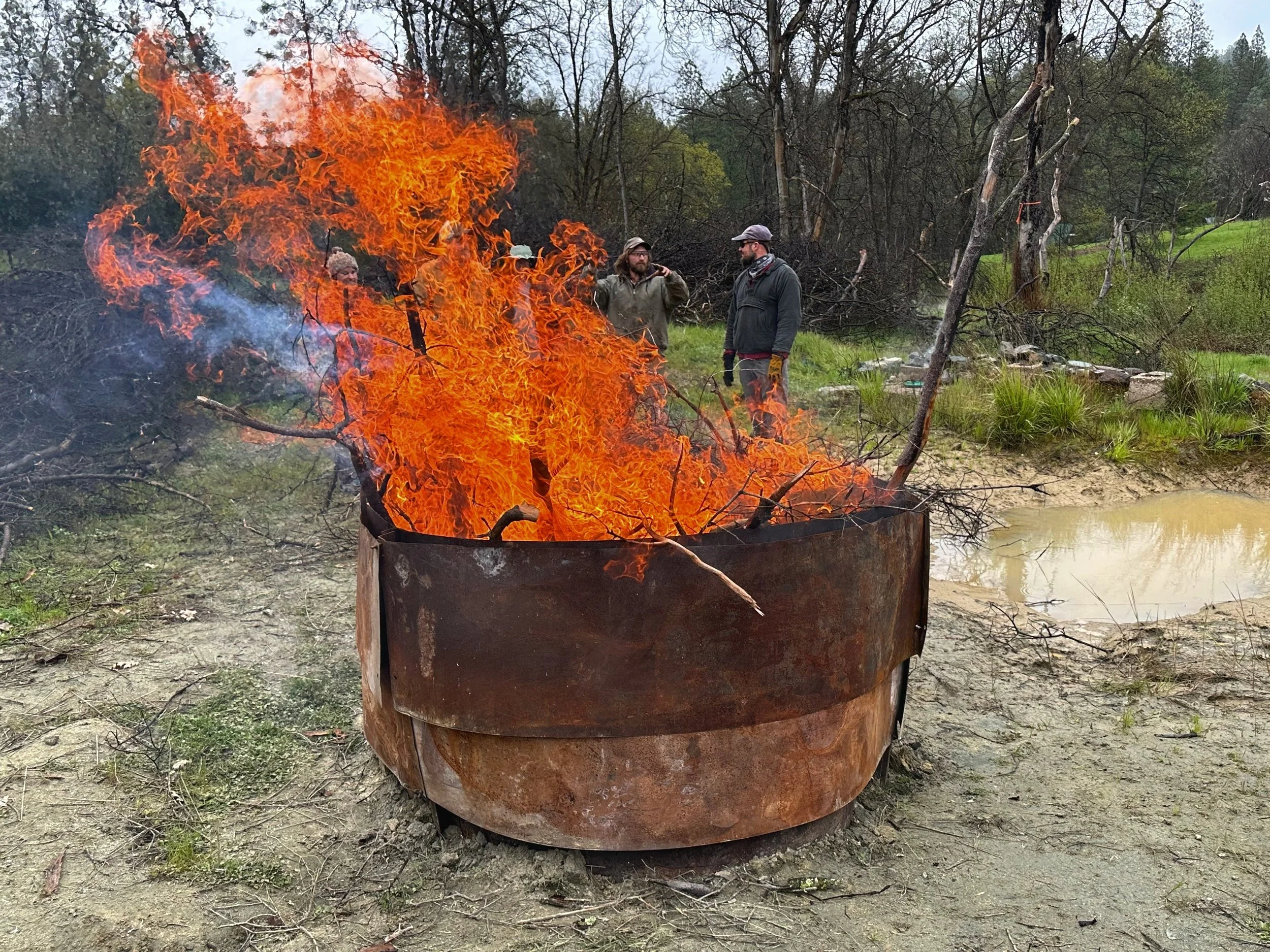Regenerative Labs & Exhibits
Biochar Bar
REAP’s Biochar Bar promotes biochar as a multi-faceted tool to address climate issues. Biochar in practice is used to sequester carbon at scale, improve soil health, remediate polluted soil and water, and reduce risk of wildfire. Our program promotes biochar as a regenerative practice in agriculture, urban planning, landscaping, and forest management. By connecting play and discovery to training and certification, REAP creates opportunities for novices and experts alike to learn how they can utilize biochar as a nature-positive solution.
Our Program
The Biochar Bar is a pioneering initiative at the REAP Climate Center, dedicated to showcasing and promoting biochar as a versatile tool for climate resilience. This regenerative lab and exhibit aims to educate and engage the community in understanding how biochar can enhance soil health, sequester carbon, and mitigate climate change. By leveraging biochar's properties, we strive to create sustainable practices that align human systems with nature, fostering ecological experiences and developing climate job pathways. As of August 2024, the Biochar Bar is in the development stage, actively refining its vision and engaging with biochar producers and industry experts.
Biochar In the World
Biochar offers significant ecological benefits, making it a powerful tool for global climate resilience. By converting organic material through pyrolysis, biochar stabilizes carbon, enhances soil aeration, and retains water and nutrients, thus improving soil health and promoting biodiversity. Its application extends to forest management, reducing wildfire risks by converting excess biomass into stable carbon. Additionally, biochar aids in environmental remediation, capturing pollutants and enhancing water quality. Its versatility makes it suitable for green infrastructure projects, from rain gardens to green roofs, contributing to urban sustainability and resilience.
Career Pathways
The Biochar Bar provides a pathway for individuals to develop careers in various fields, leveraging biochar's multifaceted applications. Farmers and agriculturalists can use biochar to improve soil health and increase crop yields. Environmental scientists can explore its impacts on ecosystem balance and biodiversity restoration. Urban planners and builders can integrate biochar into green infrastructure projects to sequester carbon and filter pollutants. Policy and carbon specialists can advocate for biochar within regulatory frameworks, supporting its role in large-scale carbon dioxide removal. The Biochar Bar invites experts, practitioners, and enthusiasts to collaborate on innovative applications, driving forward the biochar industry's growth and impact.






